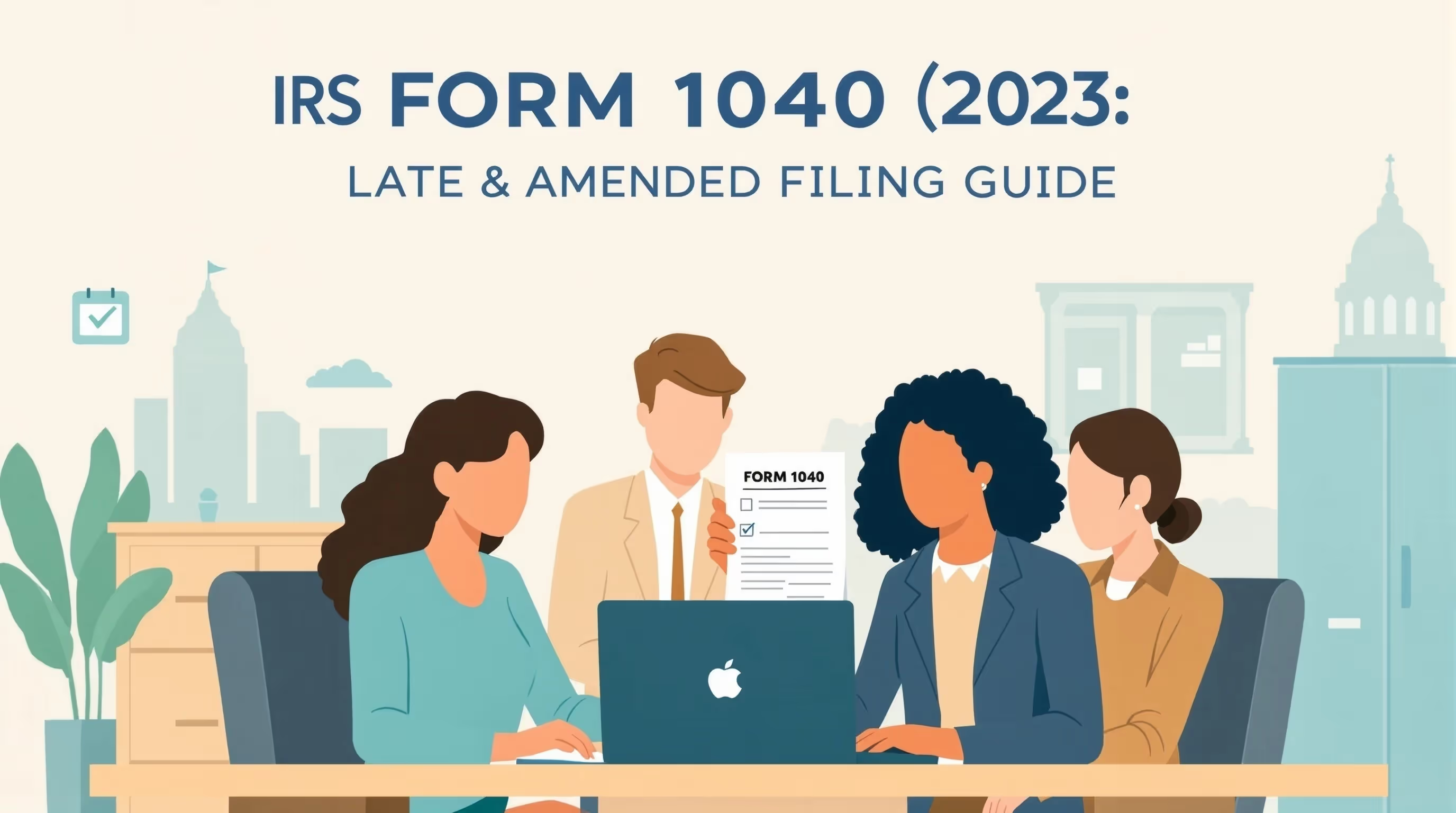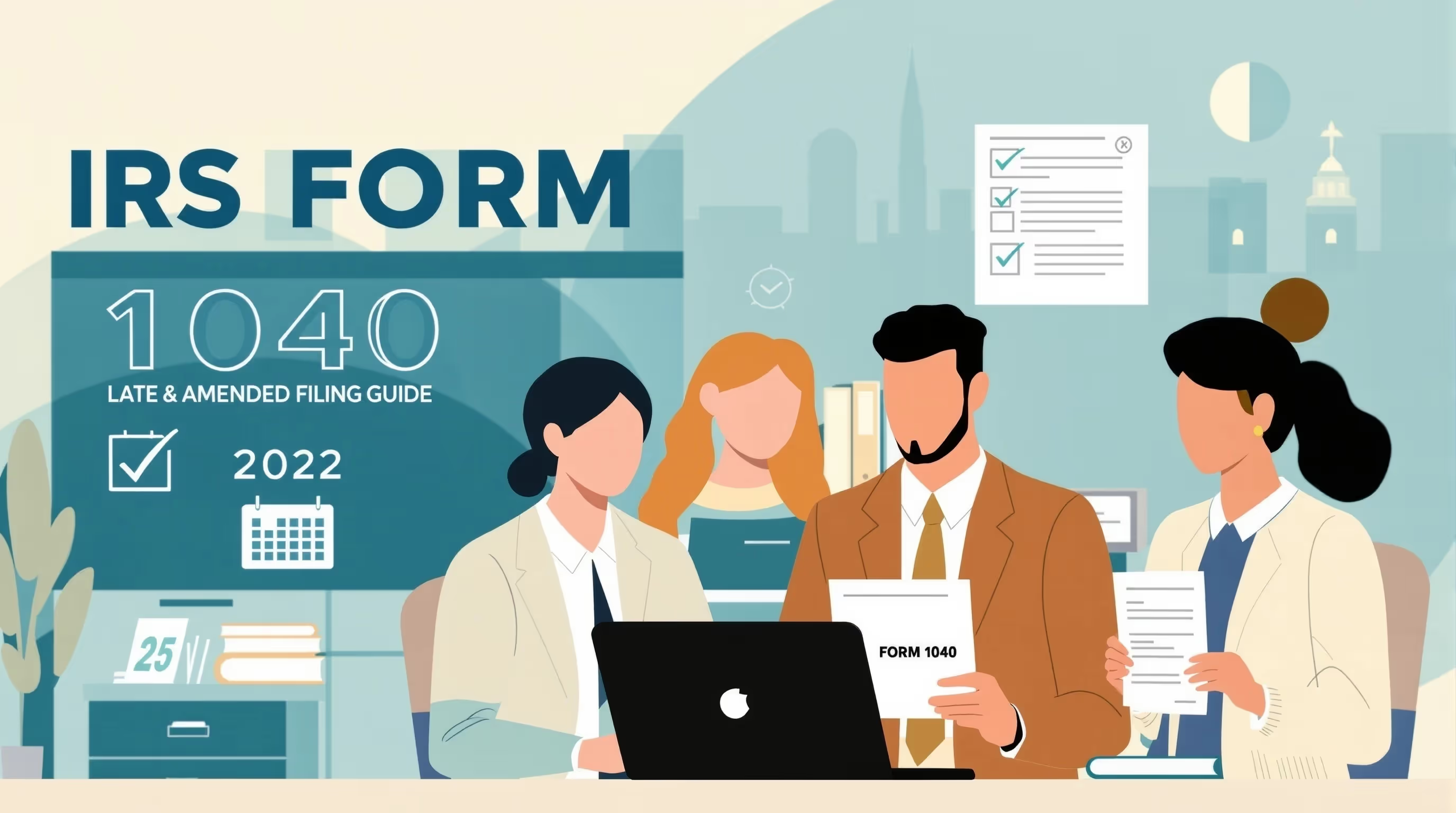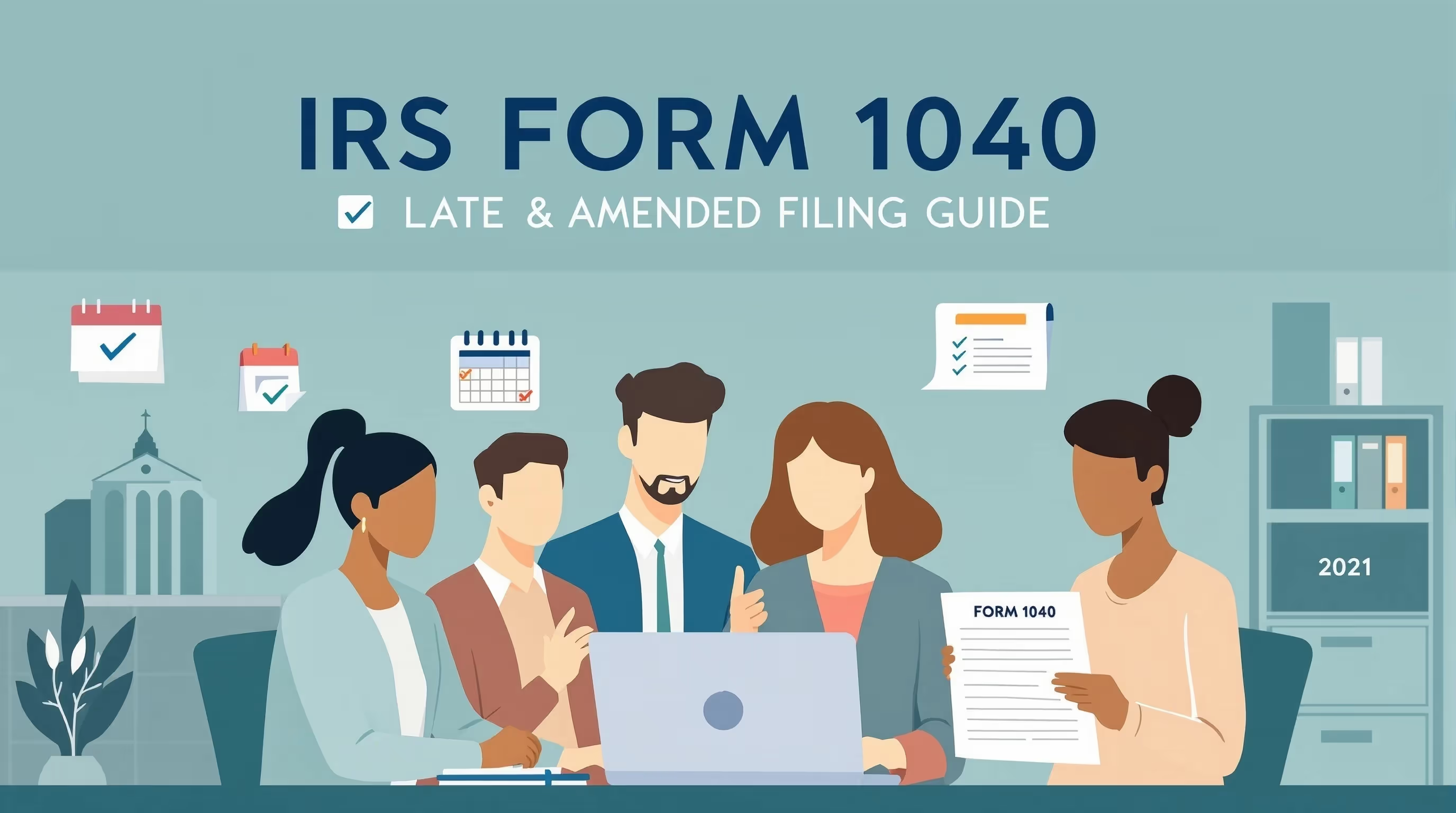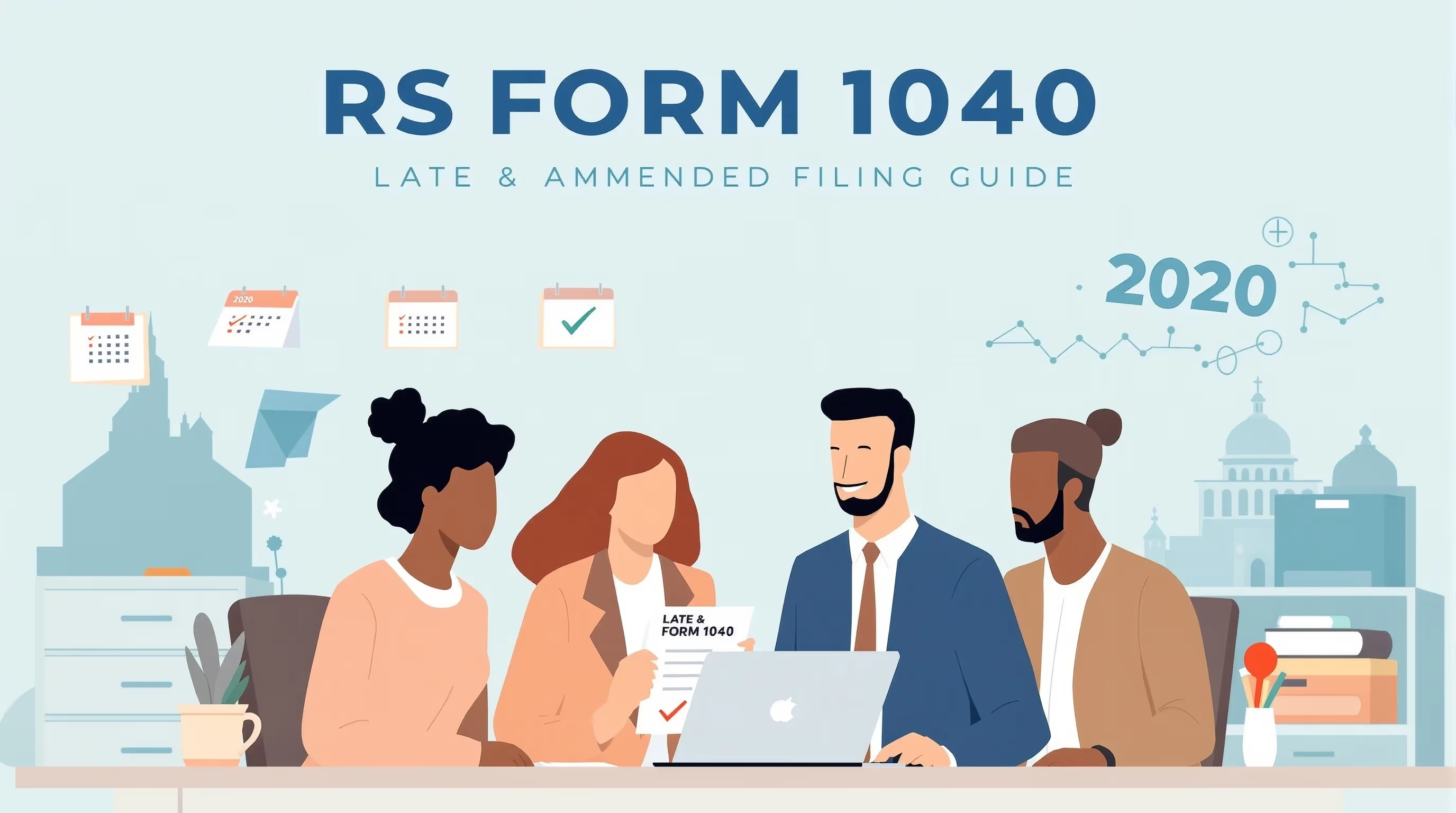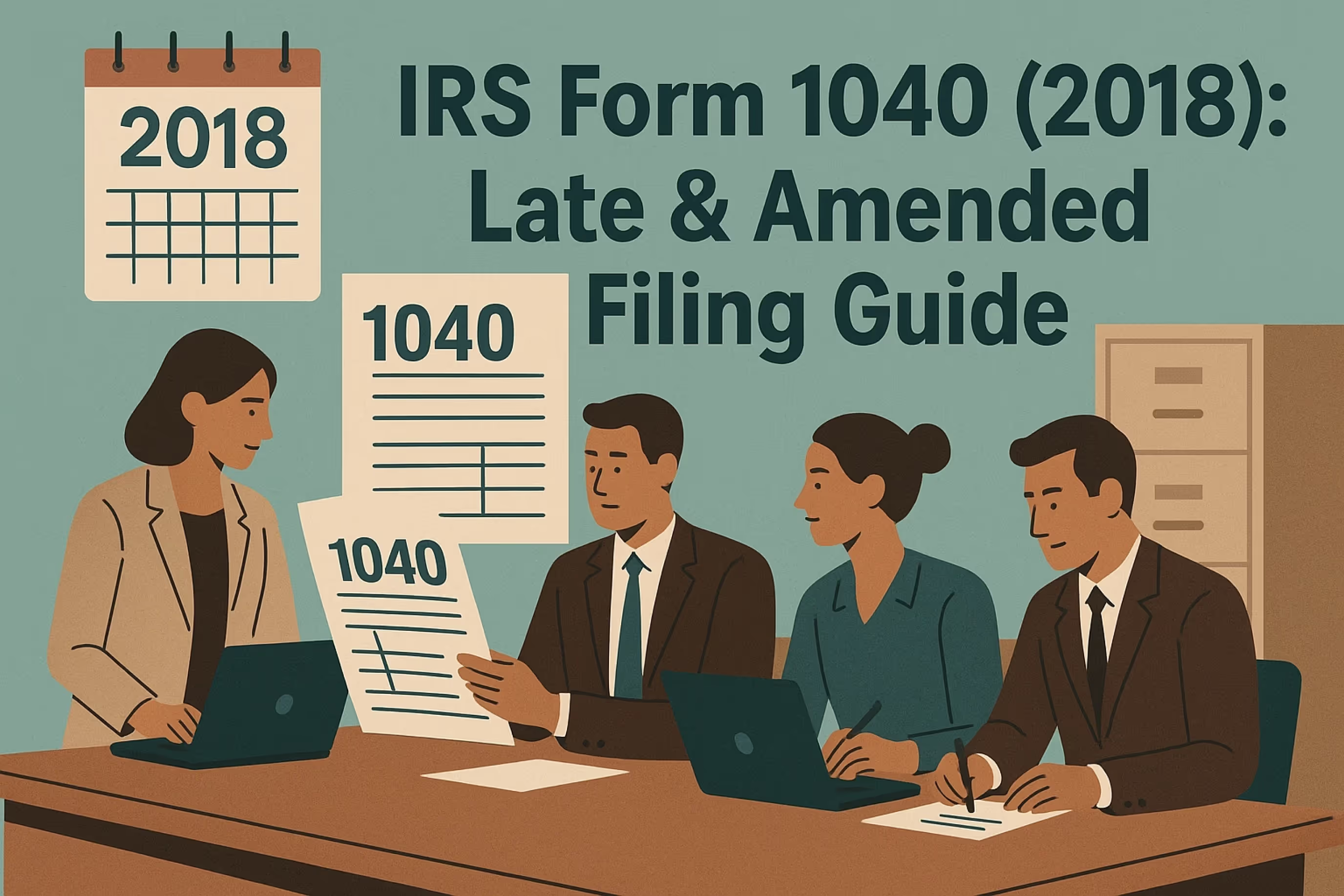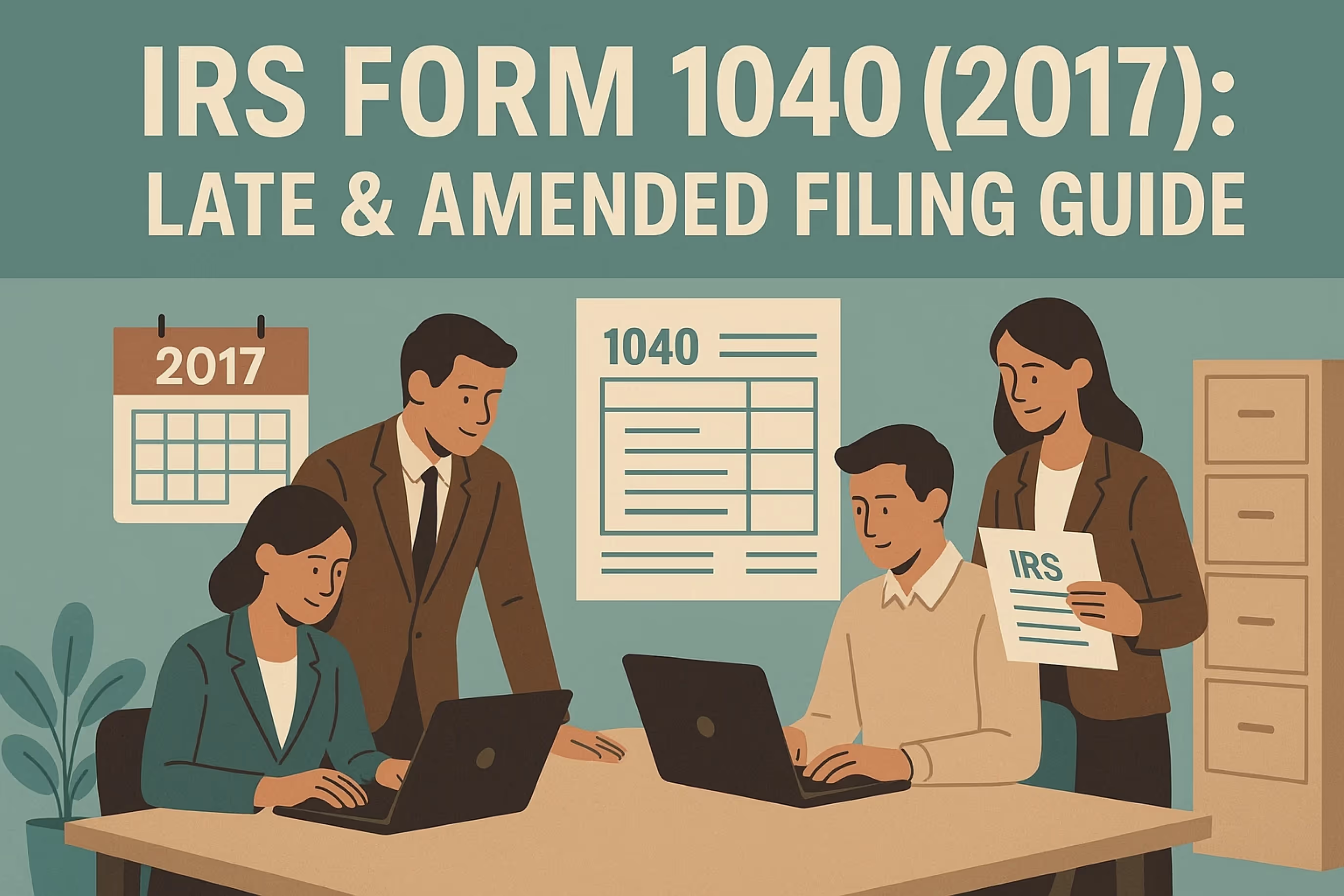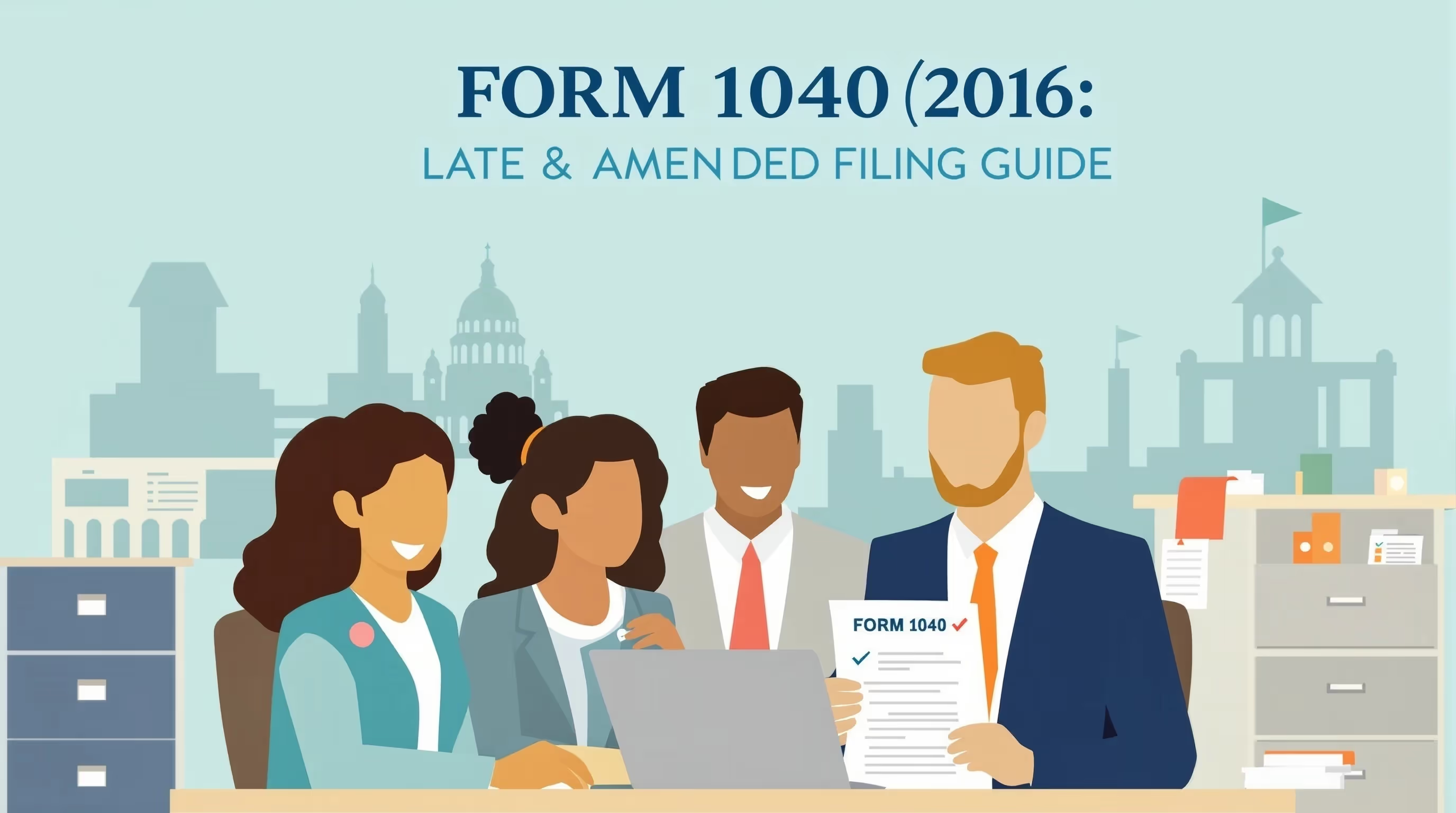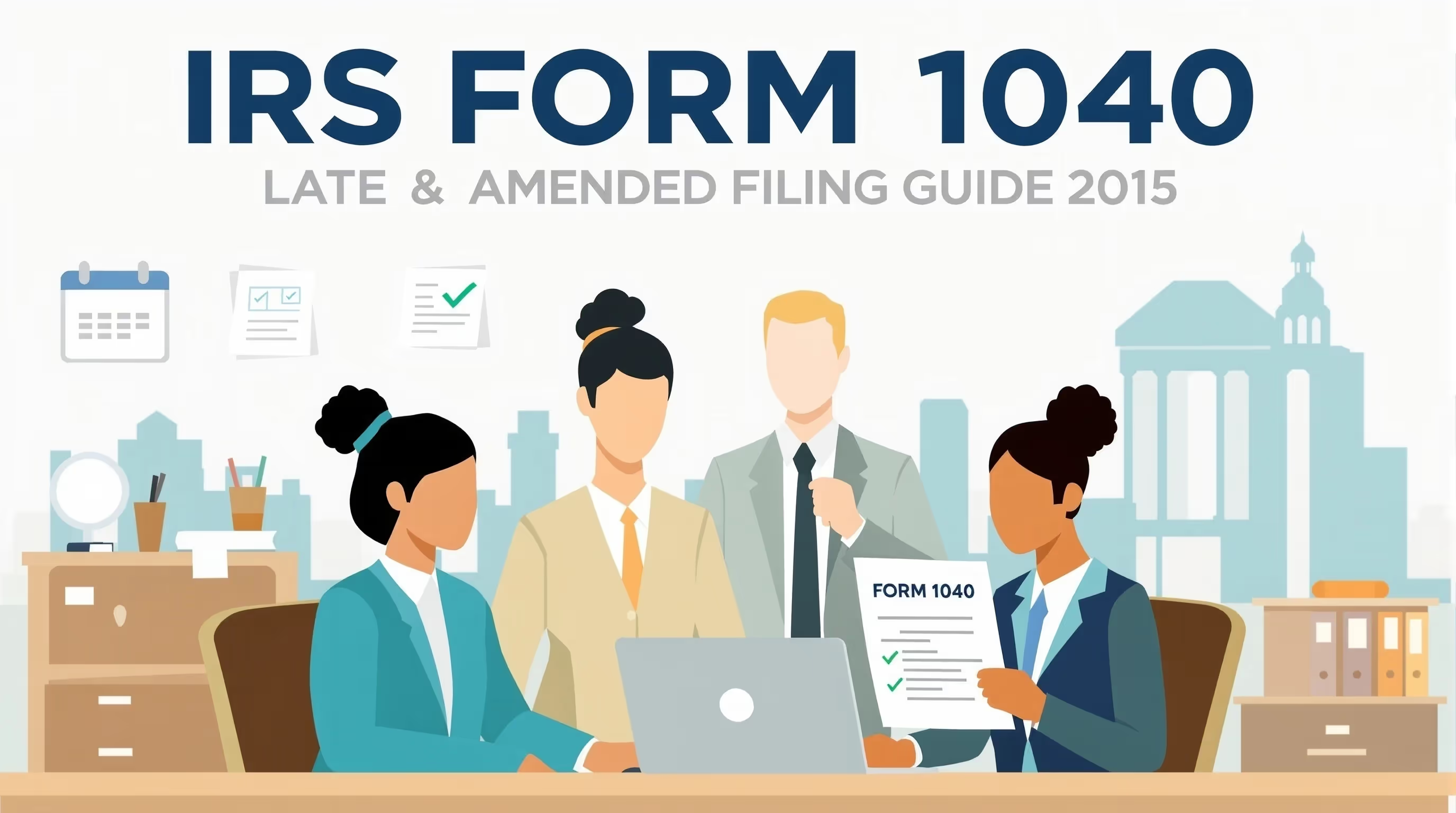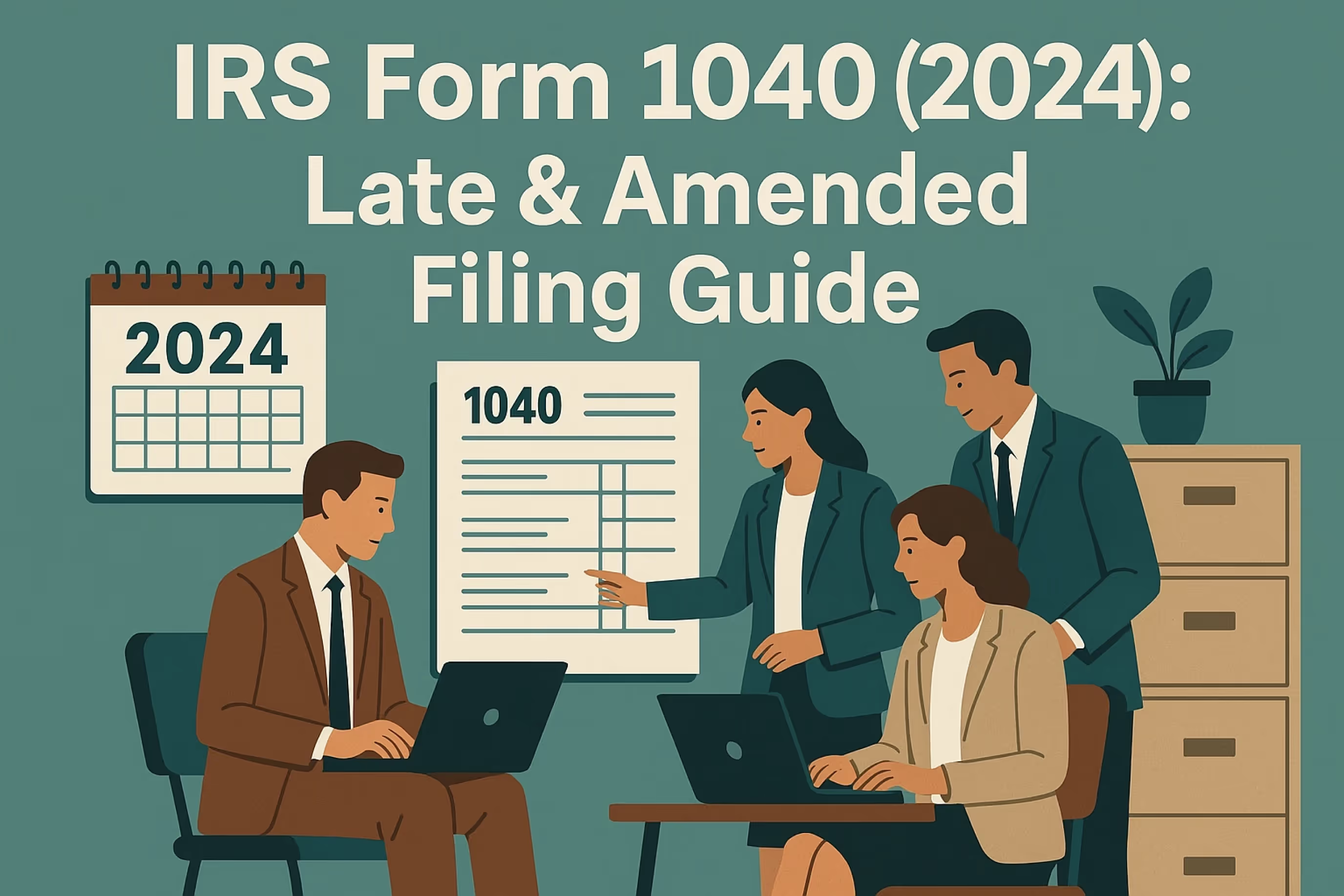
What IRS Form 1040 (2024) Is For
IRS Form 1040 (2024) is the standard federal income tax return used by U.S. taxpayers to report income, claim tax credits, and determine whether they owe tax or qualify for a tax refund for 2024. Anyone who meets the filing requirement for the 2024 tax year must file, including those with wages, self-employed income, or business taxes.
The Internal Revenue Service uses Form 1040 to calculate income tax, apply credits such as the Earned Income Tax Credit, and verify total payments made. You can securely download the form and its instructions on the IRS website, which displays the locked padlock icon for security.
When to File IRS Form 1040 (2024) Late or Submit an Amended Return
You should file taxes late if you missed the April 15, 2025, tax deadline for the 2024 tax year. The IRS late filing penalty is 5% per month, up to a maximum penalty of 25% of the taxes owed. Additionally, the Internal Revenue Service charges interest on any remaining balance. Filing your tax return as soon as possible helps reduce penalties and interest.
If you expect a tax refund, there is no penalty for filing late; however, you must file by April 15, 2028, to avoid losing your refund. Use Form 1040X to file an amended return if you need to correct income, update tax credits, or claim additional deductions from your prior year tax return. If you missed the filing deadline, submitting your unfiled federal return as soon as possible limits penalties and helps prevent IRS enforcement actions.
Key Rules for the 2024 Tax Year
Several changes affect the 2024 tax year that all taxpayers should know before filing:
- The standard deductions are $14,600 for single filers, $29,200 for married filing jointly, and $21,900 for head of household.
- Digital asset reporting now applies to anyone who received or sold cryptocurrency.
- The Form 1099-K threshold for business transactions is $5,000 in 2024, dropping to $2,500 in 2025.
- Taxpayers who received advance marketplace health insurance payments must reconcile the premium tax credits they received.
- Filers who transferred clean vehicle credits to dealers must include that information.
These changes ensure compliance with updated tax laws and may affect eligibility for certain credits. Filing late returns promptly helps reduce the chance of enforcement actions such as a bank levy, where the IRS can withdraw funds directly from your bank account.
Step-by-Step: How to File or Amend Your 2024 Tax Return
1. Gather Transcripts and Records
Request wage and income transcripts from the IRS website or call 1-800-908-9946 to verify reported income and withholdings. This helps avoid errors, missing forms, and additional IRS charges.
2. Complete Form 1040
Use the correct IRS Form 1040 (2024) version and select your proper filing status. Enter all income sources, including wages, self-employed earnings, and business income. Ensure that you accurately check the digital asset question and claim all eligible tax credits.
3. Attach Required Schedules
Attach Schedule 1 for additional income, Schedule 2 for other taxes, and Schedule 3 for tax credits. If you amend your federal return, verify if your state tax return must also be updated to avoid future penalties.
4. File Electronically
The IRS recommends that you e-file or electronically file your return. Filing online reduces processing time and helps minimize penalties. If you mail your return, use the address listed in the IRS instructions and include all attachments.
5. Keep Complete Copies
Retain copies of your federal income tax return, schedules, and documents for at least three years. These records are essential if you receive an IRS notice, need to amend your return, or request information about the past three years. Taxpayers with a clean filing history may qualify for IRS penalty abatement, which can reduce or remove certain late-filing penalties.
Common Mistakes and How to Avoid Them
- Many taxpayers use the wrong tax year forms. Always use 2024 forms rather than current year versions.
- Some filers misreport digital assets. Only check “Yes” if you received or sold them.
- Many people forget to include all their income. Compare your W-2s and 1099s with IRS transcripts before you file your return.
- Taxpayers often use incorrect deduction amounts. Always apply the 2024 standard deduction values.
- Filers sometimes misreport Form 1099-K—report only taxable business income, not personal sales.
- Many individuals overlook prior year credits or the earned income tax credit. Claiming these deductions can increase your refund and lower your tax liability.
- Some taxpayers miss payment deadlines. If you owe money, pay by the due date to avoid penalties and interest.
If you owe taxes and need more time to pay, the IRS payment plan options can help reduce penalties and keep your account in good standing.
What Happens After You File
The IRS usually processes e-filed returns within 21 days and mails returns within 6–8 weeks. Late filing or incomplete forms can cause a delay in your refund. If you owe taxes, penalties accrue monthly until the full amount is paid. The IRS charges a 0.5% late filing penalty per month plus interest until the remaining balance is paid.
If you cannot pay your full tax bill, you can request an installment agreement using Form 9465 or apply online through the IRS website. Payment options include automatic debit, phone payments, and other electronic methods.
Taxpayers who filed and paid on time for the past three years may qualify for first-time penalty abatement, which may be granted automatically. This program helps minimize penalties for taxpayers who generally comply with tax laws.
If you disagree with IRS adjustments to your return, you can appeal or file an amended return. Filing help is available through IRS resources, certified professionals, and volunteer programs for eligible taxpayers. Always use the correct 2024 version of Form 1040. You can find prior-year forms in the IRS Form Help Center to ensure accuracy.
FAQs
How much are the penalties for filing my 2024 return late?
The IRS late filing penalty is 5% of unpaid taxes per month, capped at 25%, while the failure-to-pay penalty is 0.5% per month. Penalties and interest continue until the balance is paid. Filing as soon as possible helps reduce penalties and interest.
Can I still claim a refund for 2024 if I file late?
Yes, you can claim a tax refund for the 2024 tax year until April 15, 2028. Filing after that date means you risk losing your refund permanently. File your return early to avoid delays in receiving your refund.
Do I need transcripts before filing a late return?
Transcripts are not required, but they are recommended for consideration. They confirm all income reported to the IRS and help you avoid errors that could lead to amended returns or penalties.
Should I amend my state return if I amend my federal return?
Most states require you to amend your state tax return if your federal return changes. Failing to do so can result in penalties, interest, or delays.
What if I am unable to pay my full tax bill?
You should still file your return on time to prevent larger penalties. If you owe taxes and cannot pay in full, apply for a payment plan online or by filing Form 9465. Making partial payments helps reduce penalties and interest while maintaining compliance with the terms of the agreement.
Can I get penalty relief if this is my first late filing?
Yes, if you have been compliant for the past three years, you may qualify for first-time penalty abatement. You can request this relief by calling the IRS or through written correspondence.
What if I forgot to report digital assets?
If you forgot to include digital asset income, file an amended return using Form 1040X. Accurate reporting helps avoid penalties and keeps your return compliant with current tax laws.









